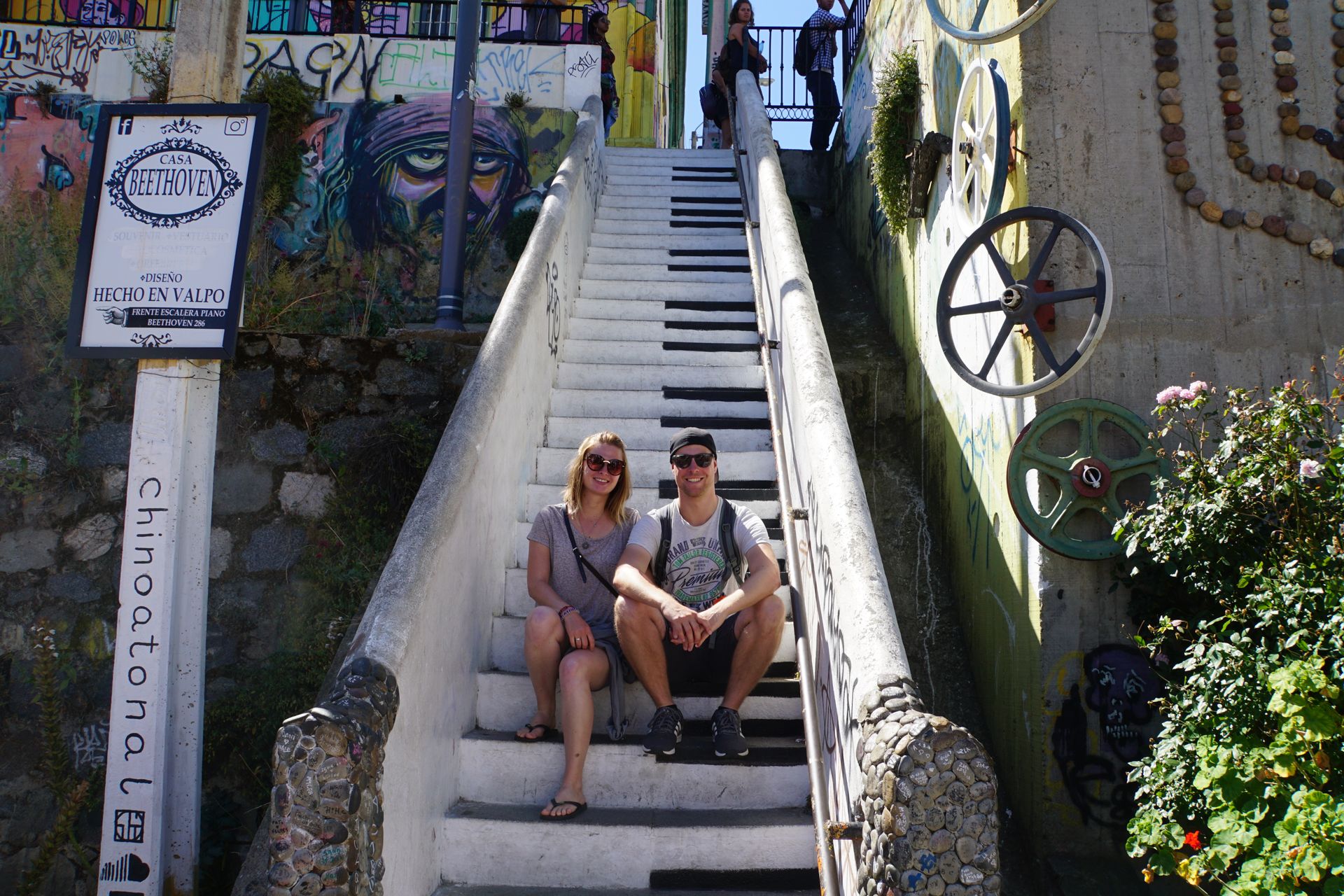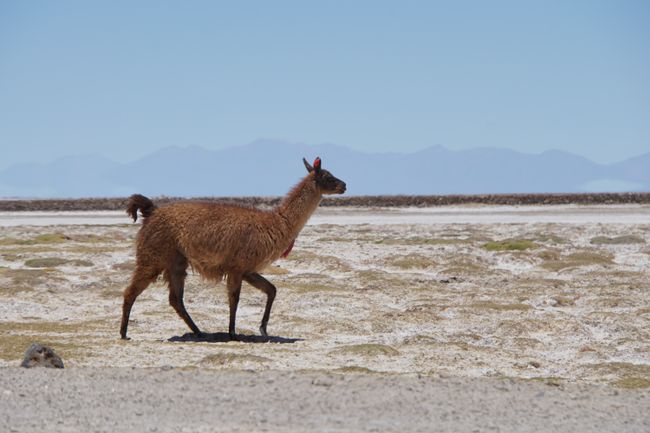Our day at the Franz Josef Glacier, Mount Cook and Wanaka
Objavljeno: 14.03.2019

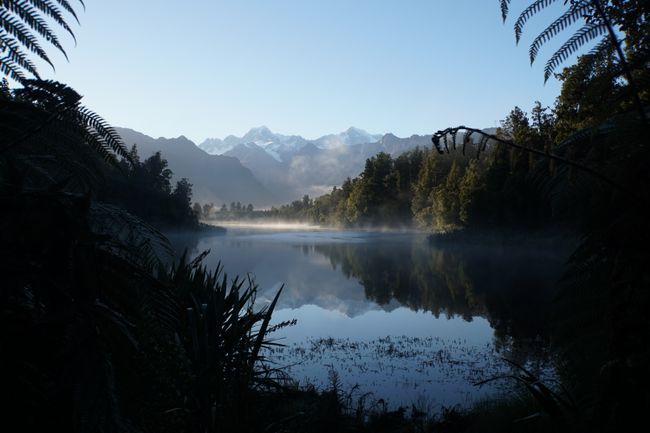
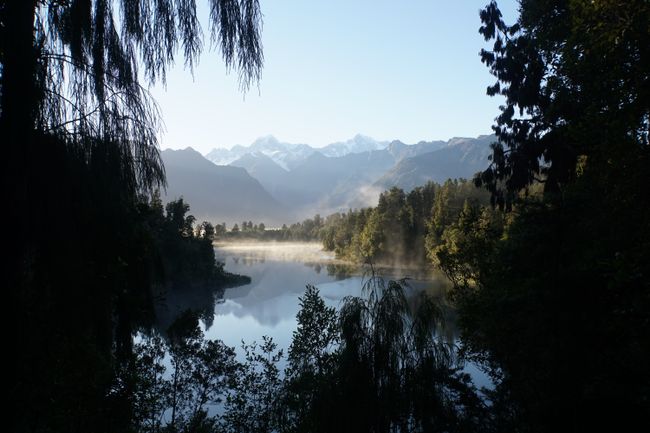
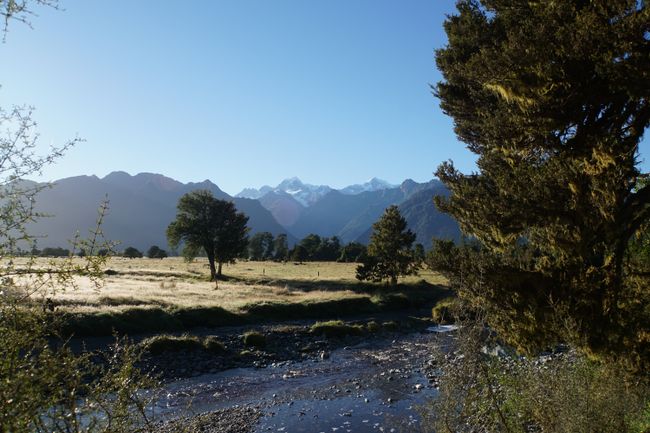
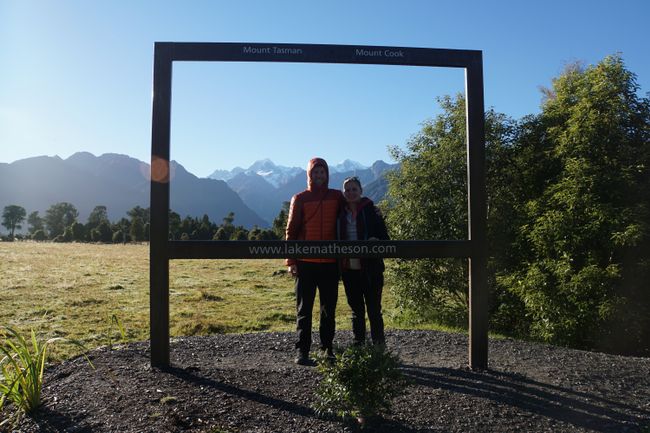
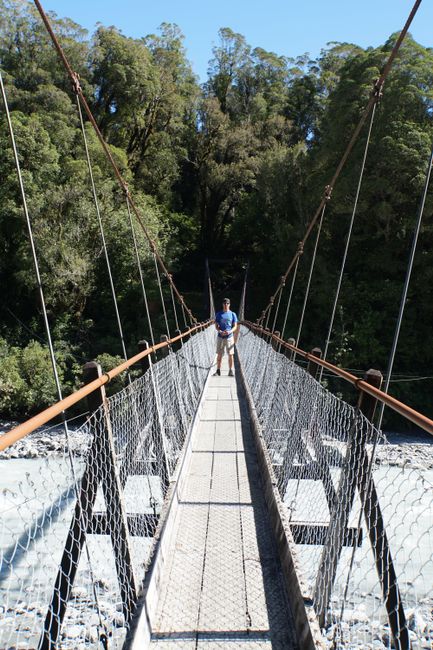
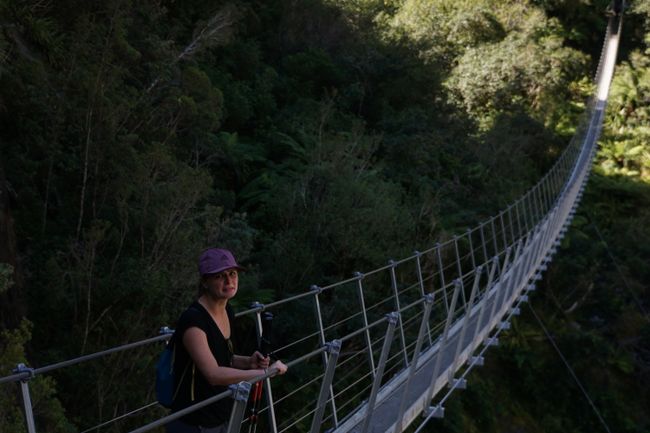
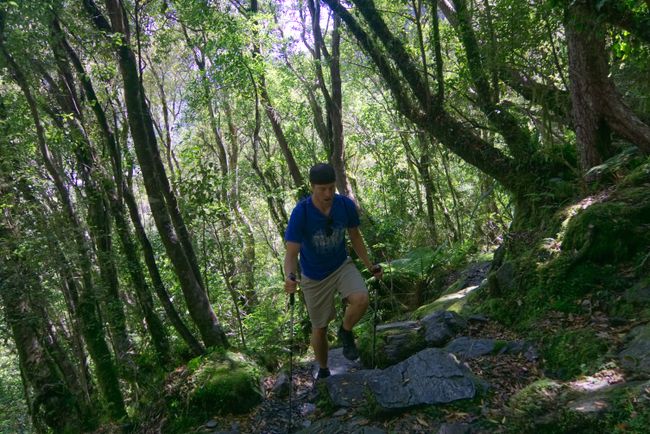
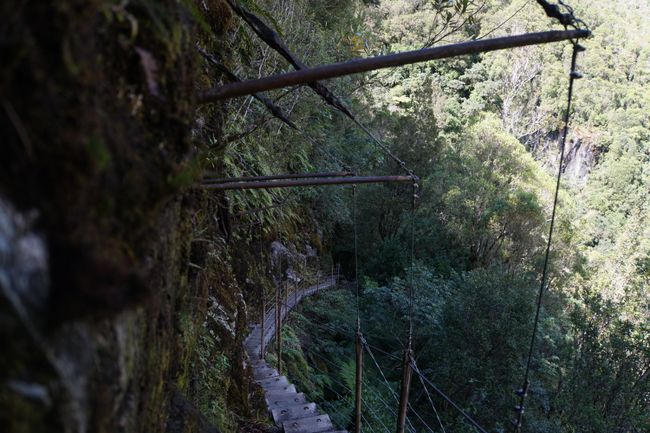
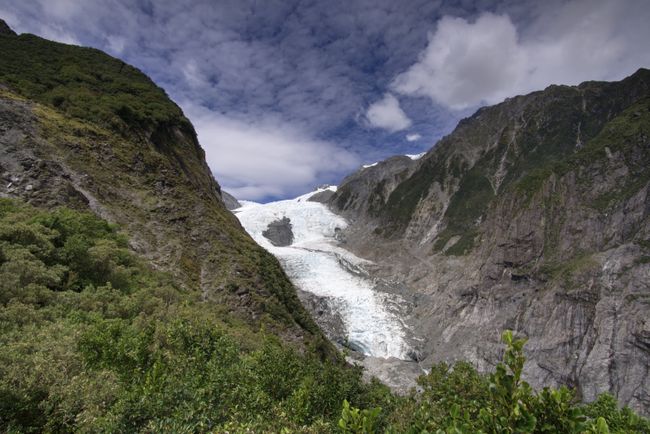
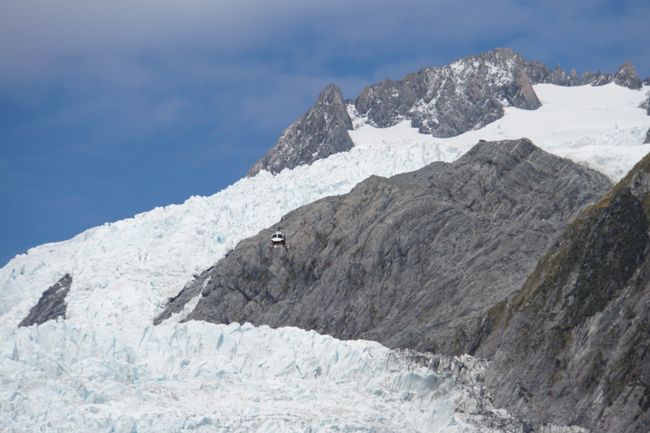
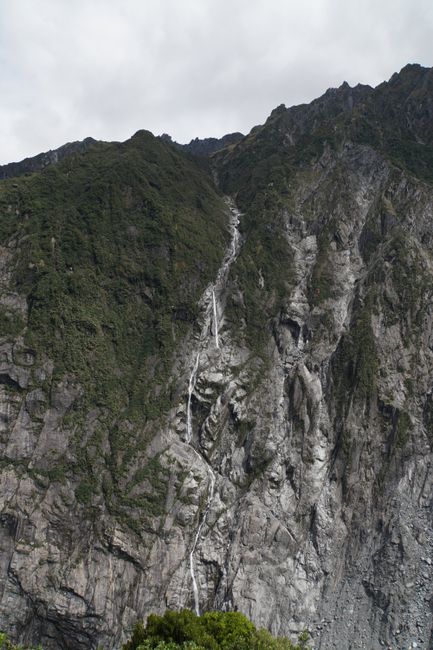
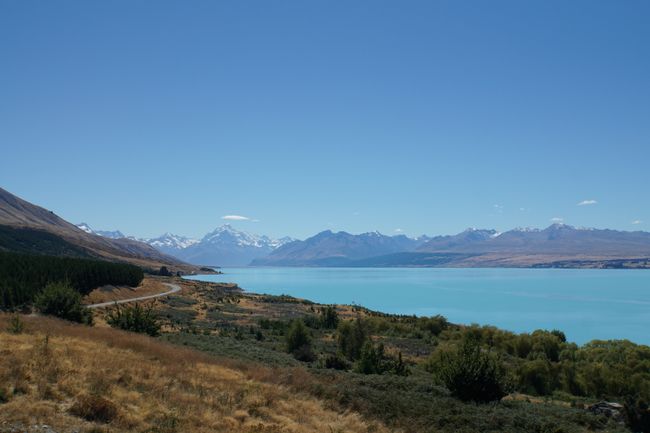
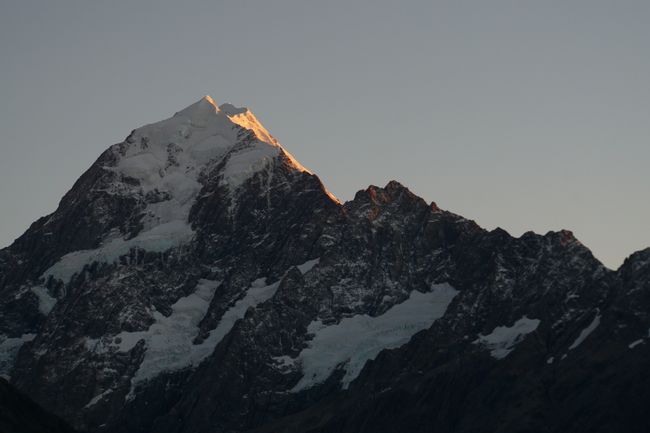
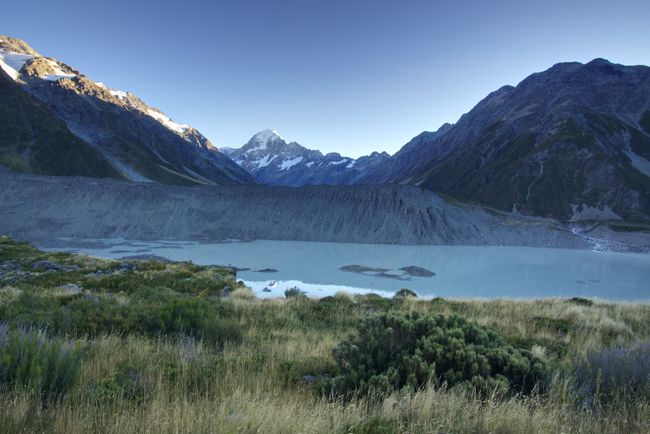
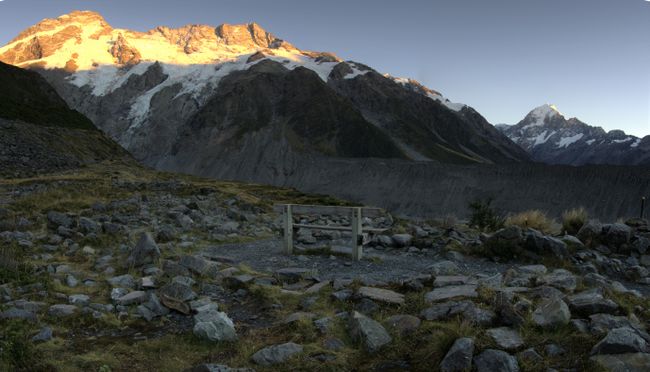
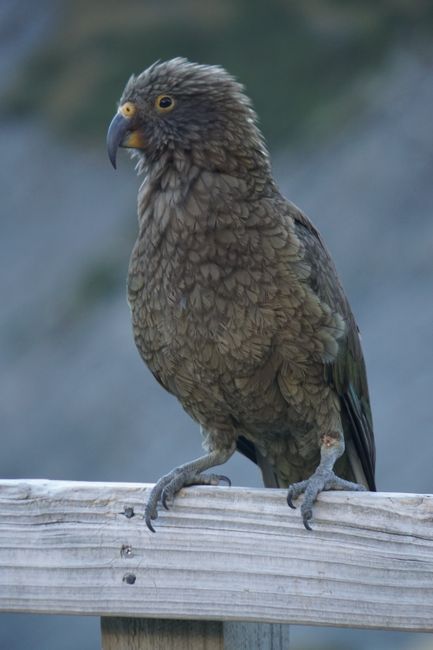
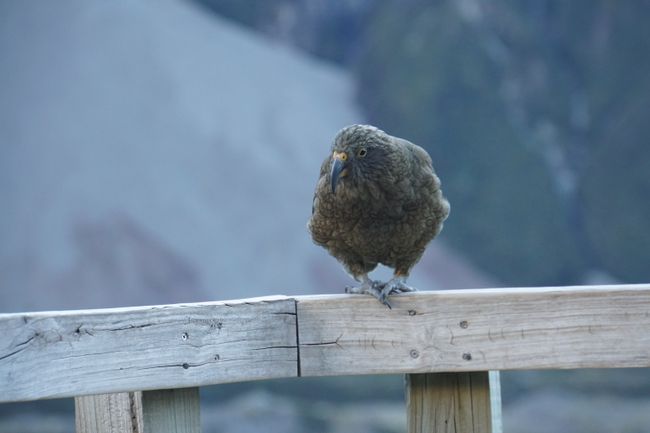
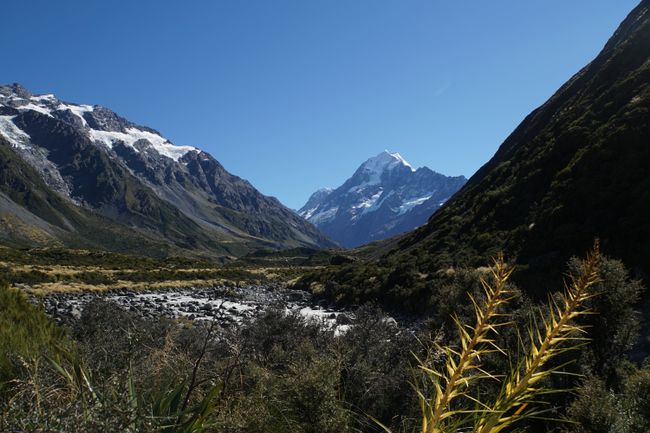
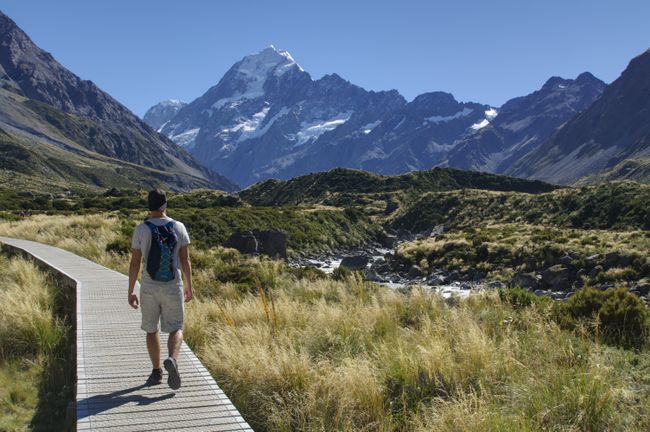
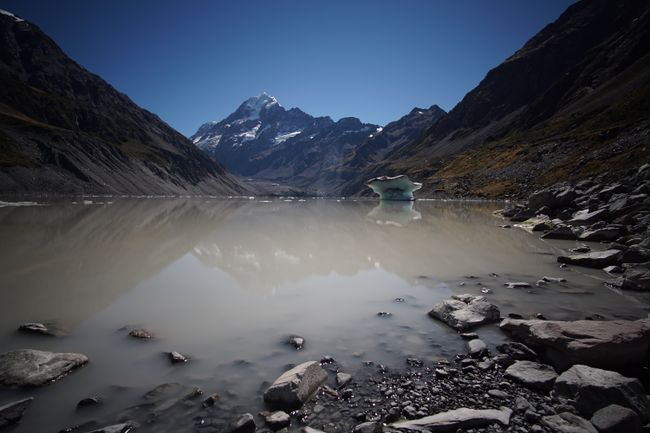
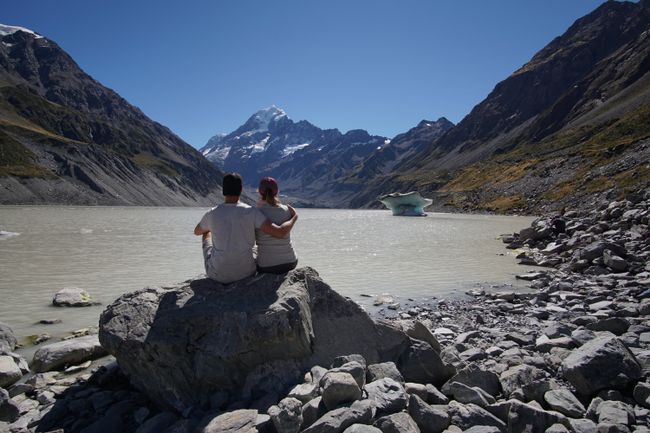
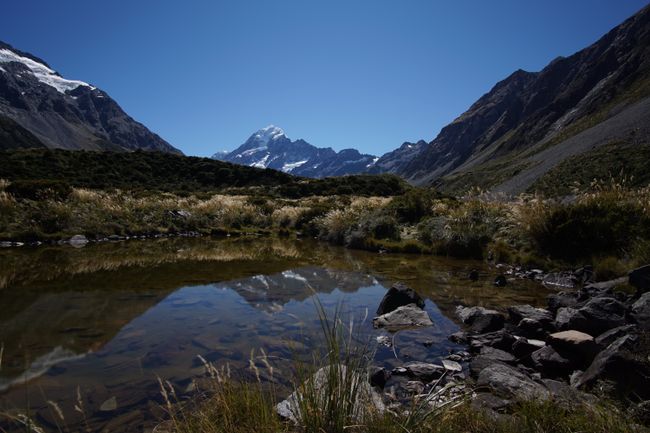
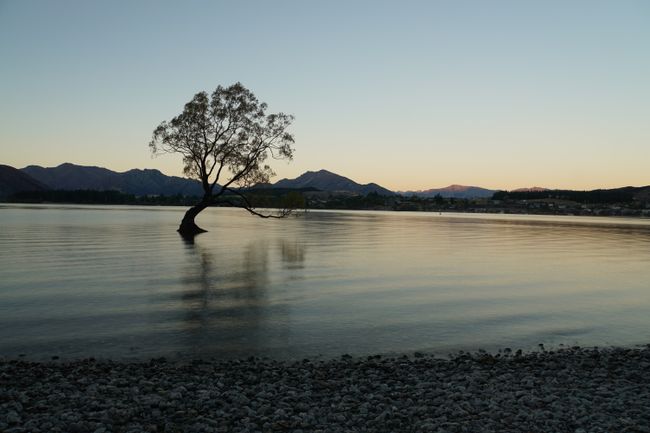
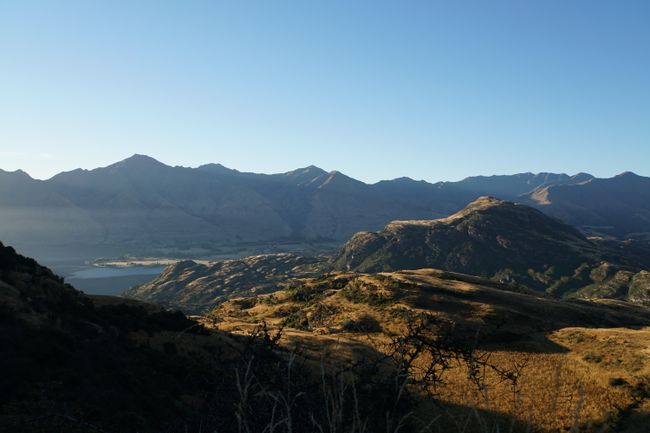
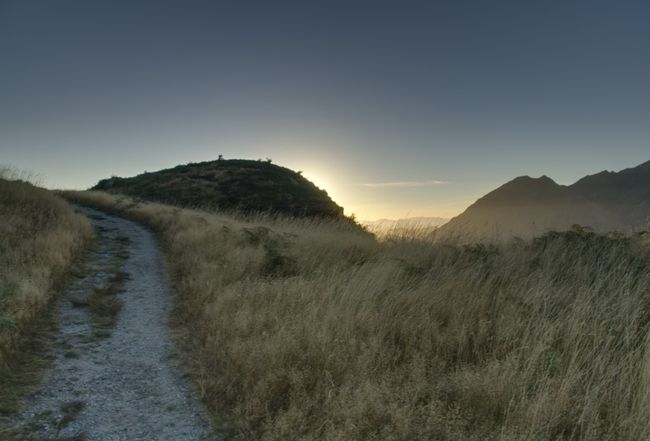
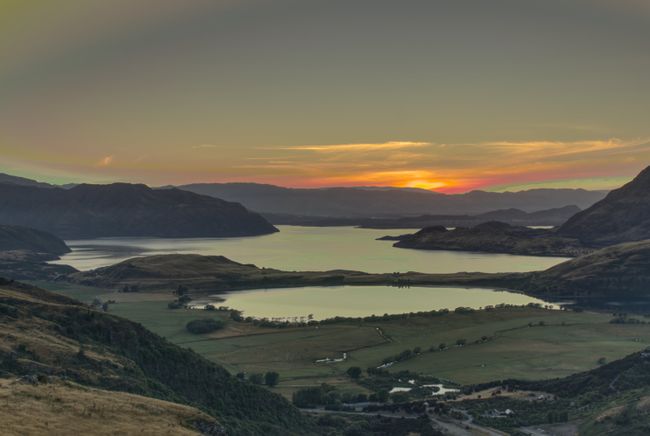
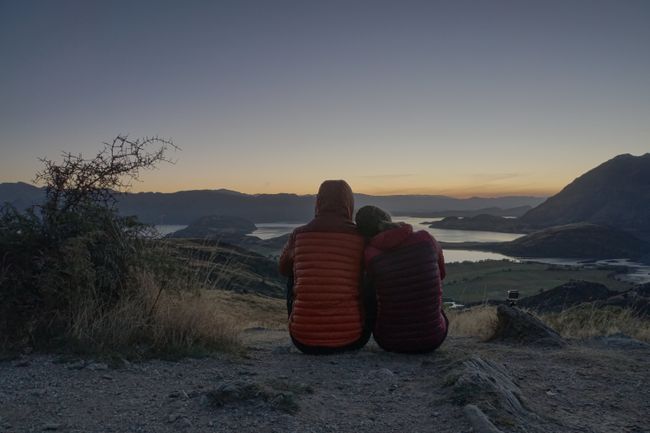

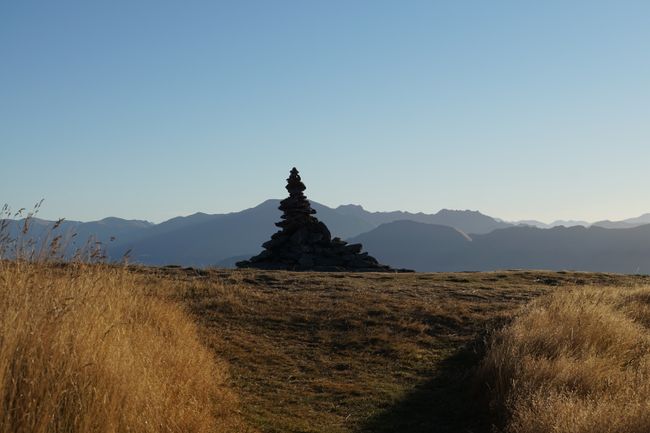
Naročite se na glasilo
We have now arrived in Franz Josef Village near the famous Franz Josef Glacier on the west coast of New Zealand's South Island. The next morning, we are expecting the second rainy day of our trip through New Zealand, and the sky will not clear until around 4 pm. Therefore, hiking is not an option today, especially since the DOC recommends not hiking in the rain as the trail is lined with slippery and moss-covered rocks. So once again, we postpone the hike to the following day and take care of our blog and enjoy the free (albeit wet) day.
For the next morning, we plan to get up early and watch the sunrise at the nearby Lake Matheson (a big thanks to Kathi at home for the great tip via Facebook). For getting up early, we are rewarded with a view of Mount Cook and Mount Tasman, which are reflected in the almost unreal smooth surface of the lake.
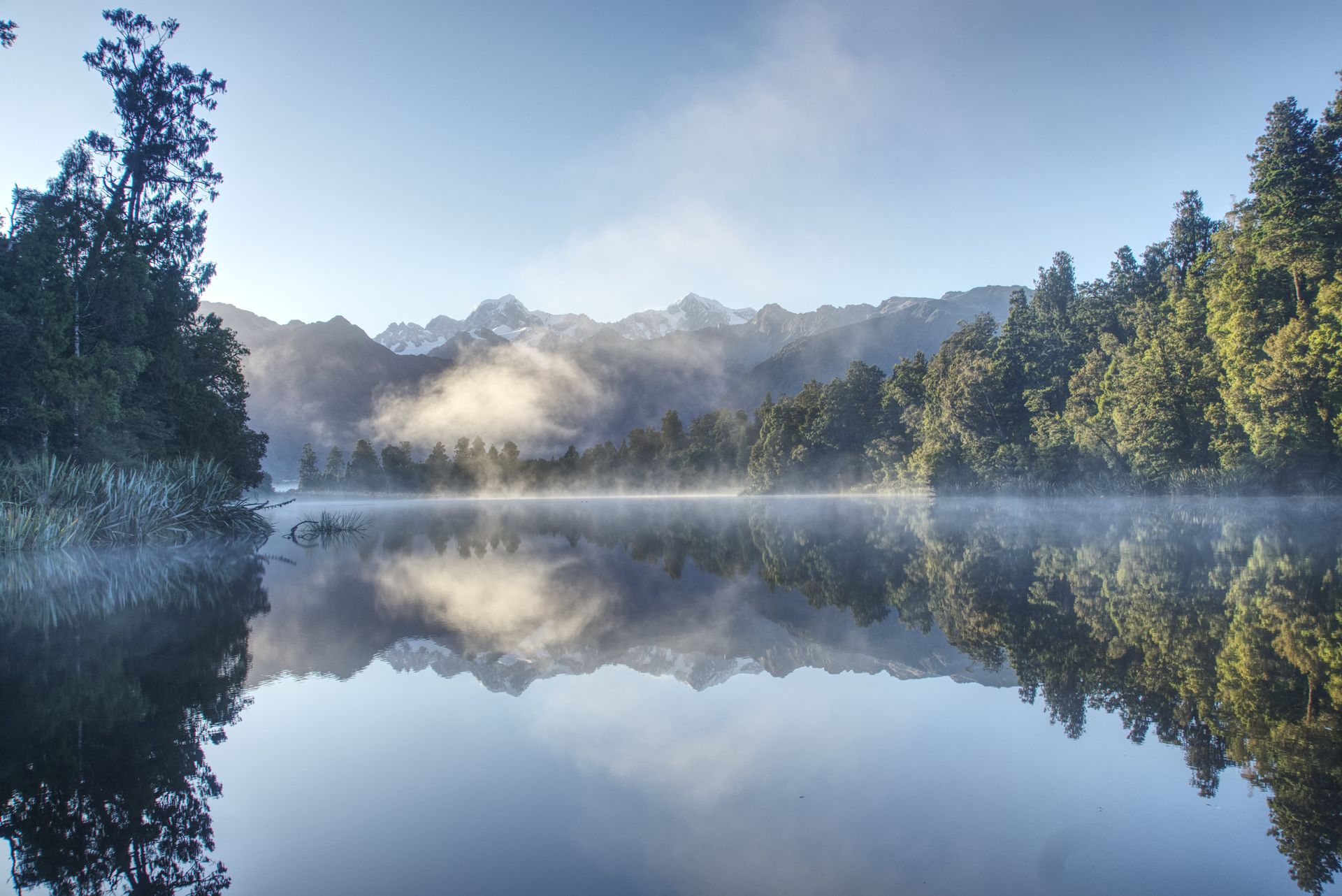
Mount Tasman on the left, Mount Cook on the right
Back at the campsite, we have breakfast, pack up our tent, and drive to the starting point of the Robert Point Track, which we can hike today in perfect weather. The trail leads through fern forests, over suspension bridges (Laura is not thrilled), and small streamlets, and it is the most beautiful and varied hiking trail we have encountered in New Zealand so far. Laura has to overcome her fear of heights at some points and cross some longer but well-maintained suspension bridges. (Note: Yes, I also trust the suspension bridges here in New Zealand more than those in South America, but high is still high!)
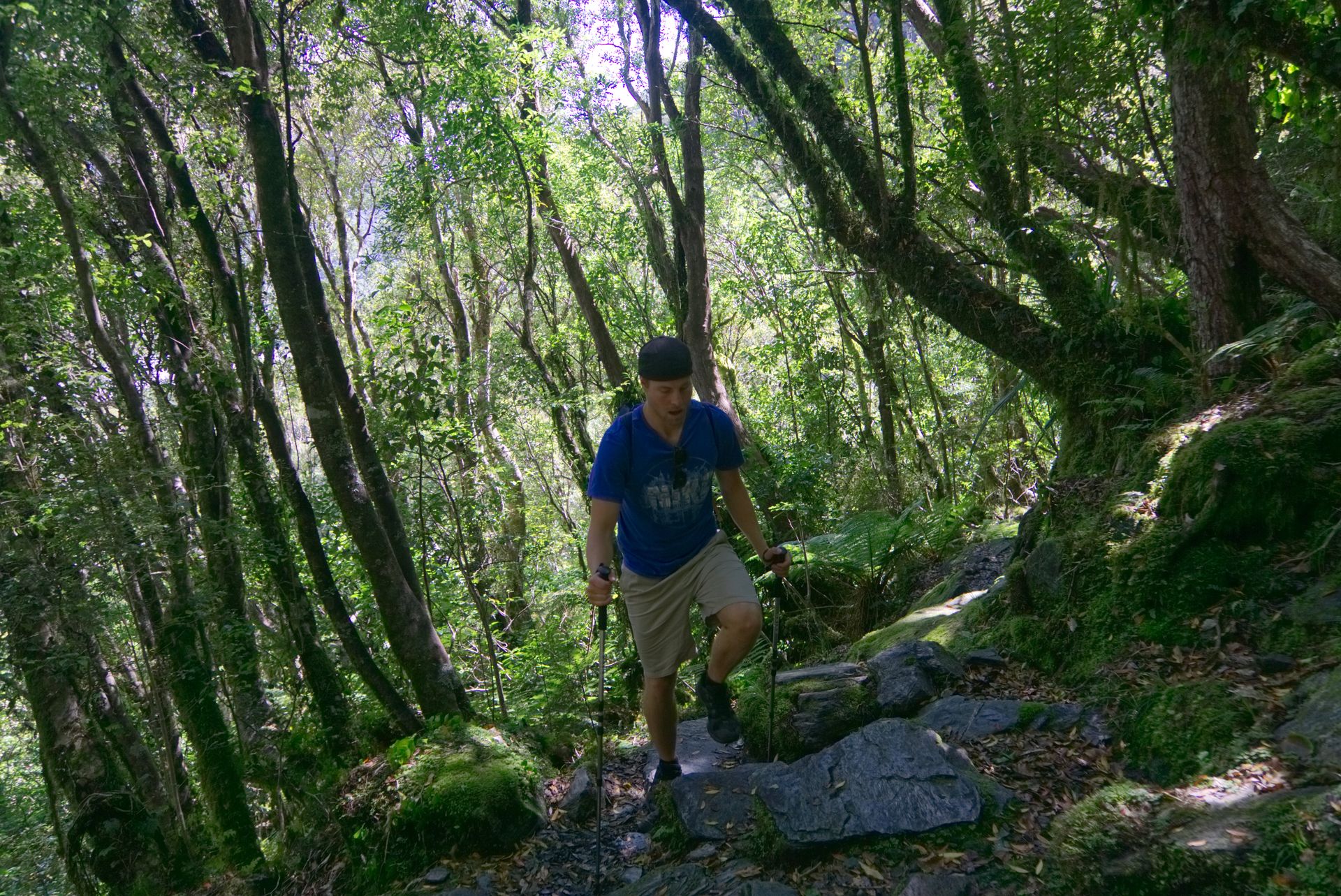

At the end of the trail, we reach a viewing platform from which we can admire the Franz Josef Glacier. By the way, the Franz Josef Glacier is one of the few glaciers on Earth that is not constantly shrinking. While there has been a trend in recent years for the glacier to lose mass, it has also had periods like this before, and in the 1980s, it actually gained mass. However, the ice sheet we see today is only a tiny remnant of the former giant that once surrounded Mount Cook and the surrounding mountains about 150,000 years ago.
From our viewing platform, we can see the entire 10km-long glacier tongue and the crevasse. There is a busy flurry of helicopters up here. The glacier can no longer be walked on foot, so tourists are now flown onto the glacier by helicopter to embark on various tours. A helicopter lands on the ice and drops off or picks up tourists every two to three minutes. You really can't speak of a quiet place anymore. Although the helicopter tour is certainly worth the money, we have decided to do without it. We have already walked along the Perito Moreno Glacier, so the view from the foot of the mountain is enough for us.

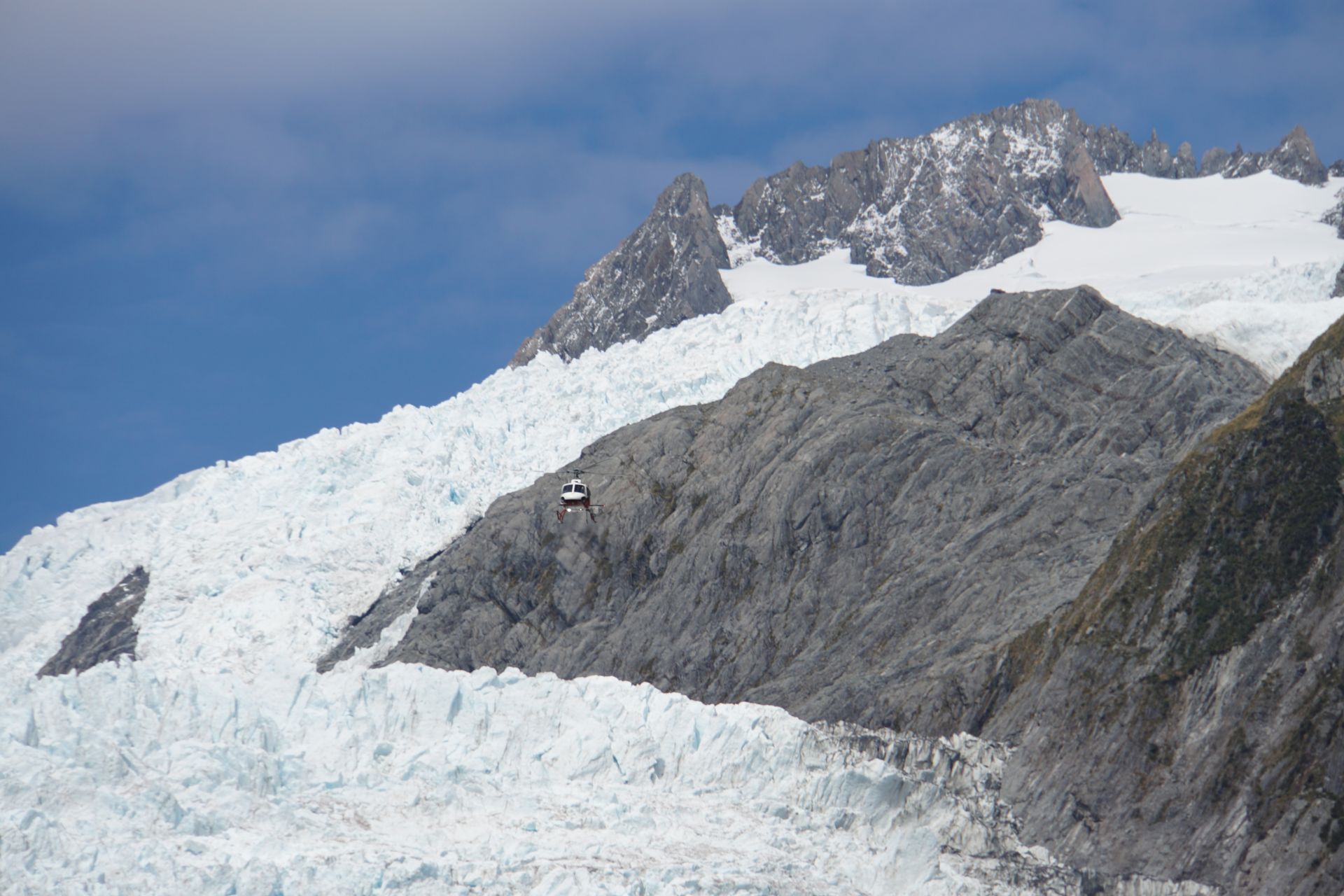
Back at the car, we decide not to do any of the smaller round trips with a view of the Fox Glacier, but to drive directly to Mount Cook, our next destination. Firstly, the glaciers here in New Zealand can only be admired from a distance on foot, and secondly, as mentioned before, we have already been able to admire several glaciers up close in Patagonia. After about three hours of driving, we arrive at the campsite, exhausted from the long day and the early wake-up call. After a quick dinner and a quick shower, we fall asleep tired in our sleeping bags.
The next day, we briefly stop in Wanaka to restock our supplies at the supermarket and then continue driving towards Mount Cook. The highest mountain in New Zealand, Mount Cook, can be seen from a distance, and we never lose sight of it as we get closer and closer. Just because of this view, the three-hour drive has already been worth it.
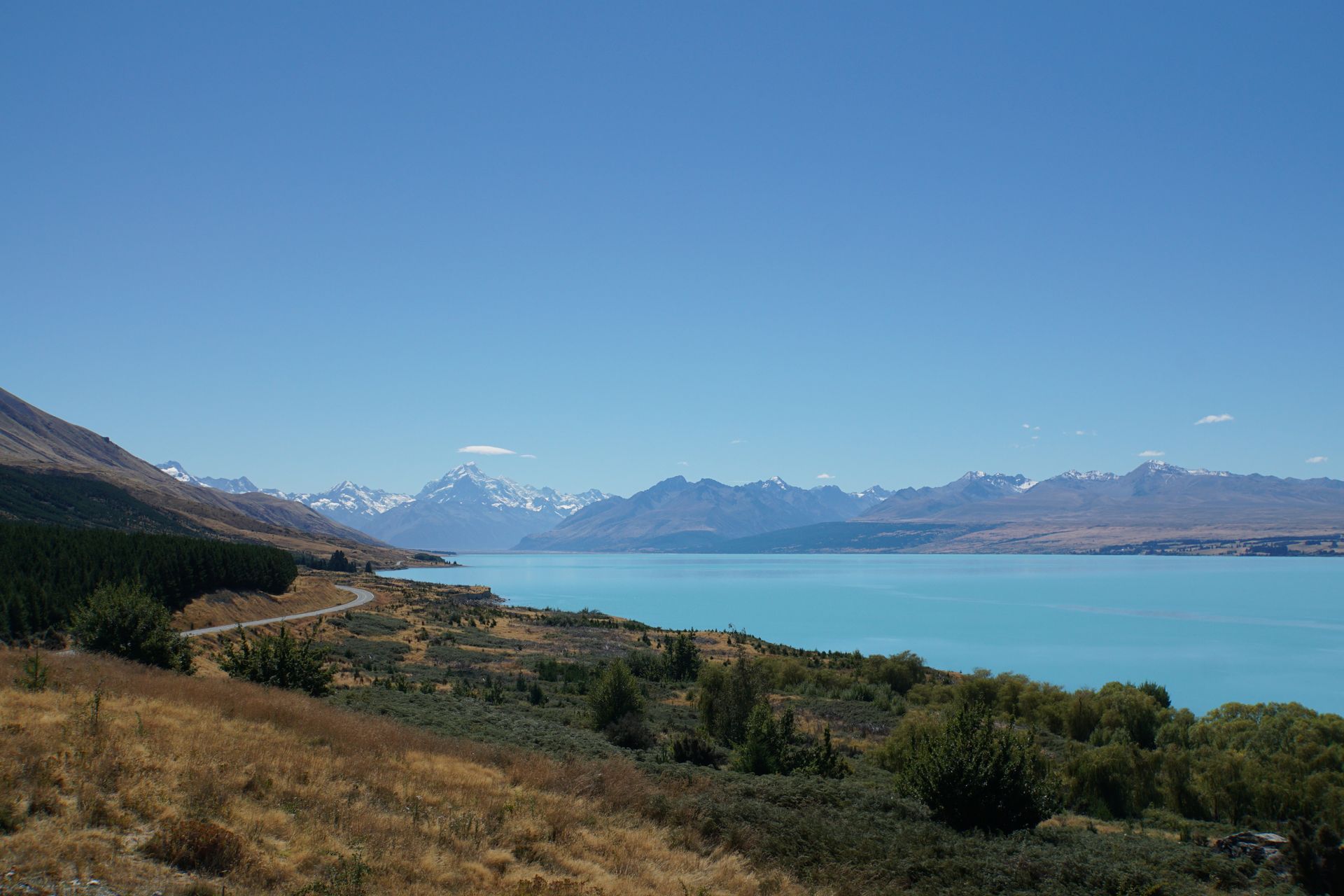
In the afternoon, we arrive at White Horse Campground and find a quiet and level spot for our tent. From here, I venture out alone to explore the surroundings for an hour while Laura enjoys the sun with my book, being observed suspiciously by one of the numerous rabbits on the rather rocky campground. Tomorrow, we plan to hike to the glacier lake of the Hooker Glacier which extends from the summit of Mount Cook down into the Hooker Valley.
The next morning, I get up fully motivated to photograph the sunrise at Kea's Point. It's about a half-hour walk, but once again, getting up early should pay off. Luckily, I can actually photograph a kea that has settled on the wooden fence just 2m away from me and is curiously observing me. In the meantime, Laura is still in the tent, getting some much-needed sleep and thawing a little, as it has gotten quite cold here in the mountains at night!

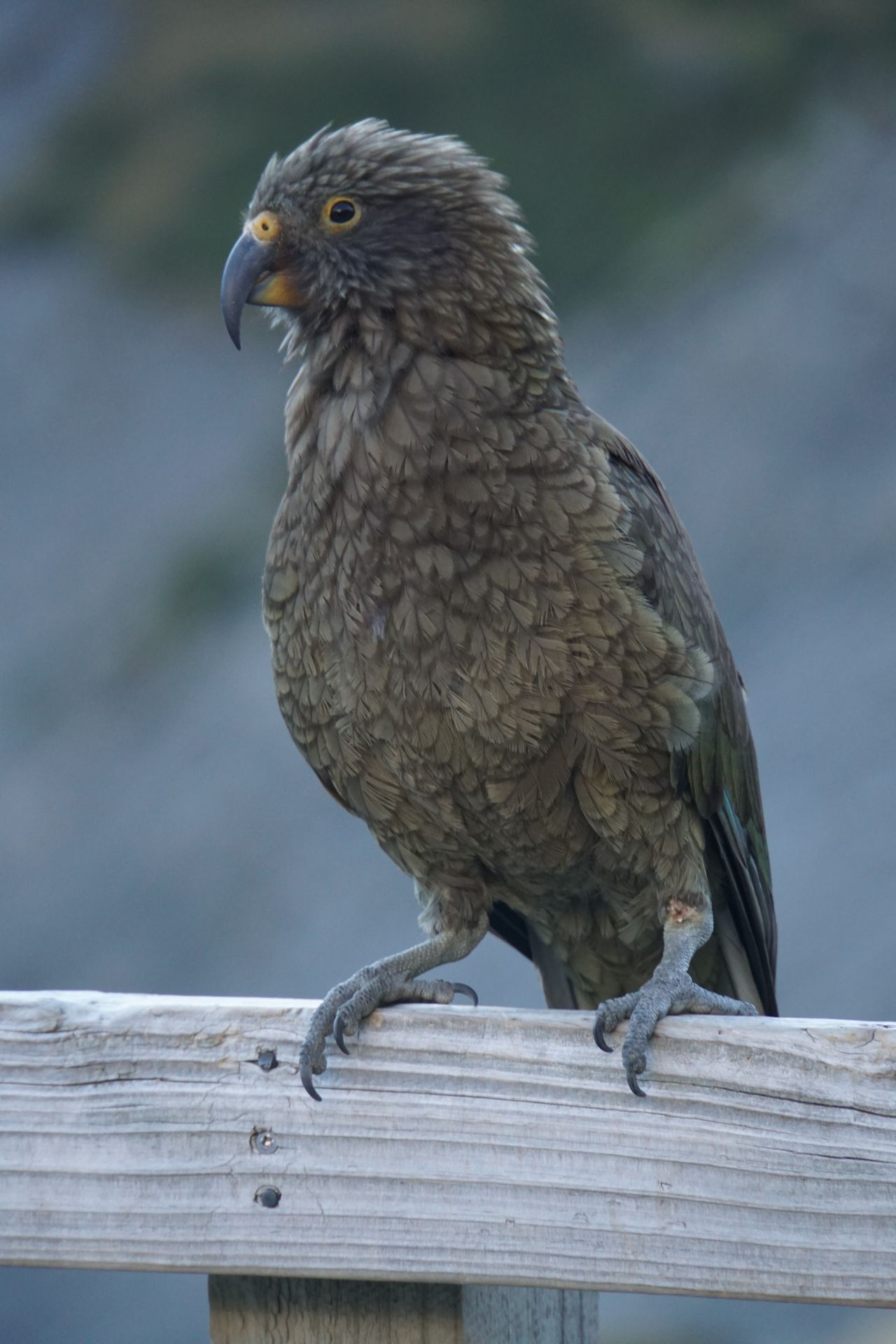
Back at the tent, we have a leisurely breakfast and then head off to the Hooker Valley Track. This is a well-maintained hiking trail that leads over three (thankfully not very high) suspension bridges to the glacier lake of the Hooker Glacier. Along the roughly one-and-a-half-hour hike to the lake, you always have a view of Mount Cook.
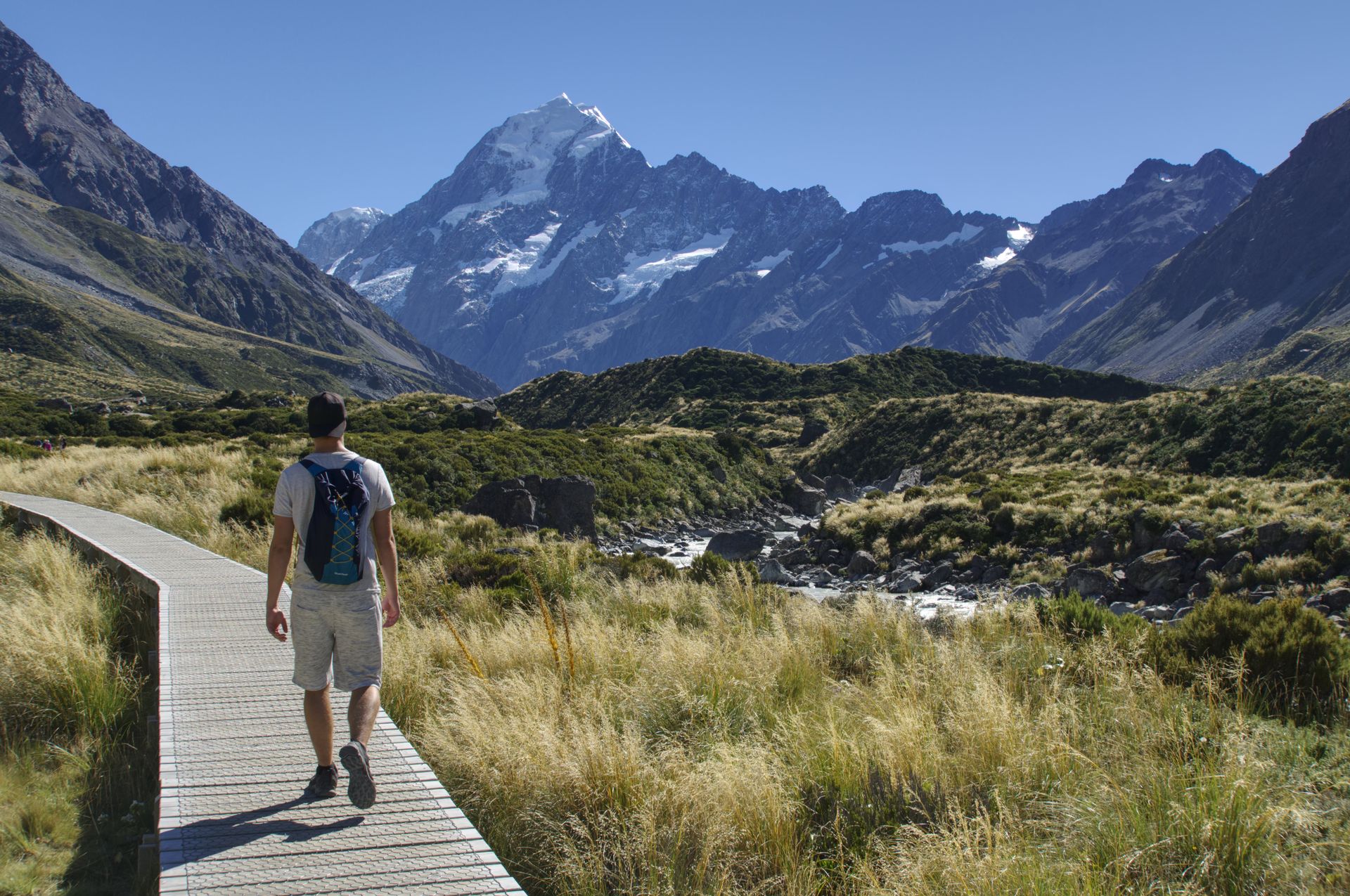

We take a short break at the glacier lake and enjoy the view before making our way back. At the campsite, we pack up our tent again, grab Klaus-Gunther and drive back to Wanaka. On the way there, we stop at a salmon farm where we cannot resist feeding the salmon and trying some fresh salmon sushi - possibly macabre, but you can't get fresher than this.
In Wanaka, we plan to stay for the next two nights. Here, directly on or in Lake Wanaka, stands the most famous tree in New Zealand. The willow, which grew from an unfinished fence post, gained world fame at the latest with a photo competition in 2015. And of course, we don't miss the opportunity to take a picture of the tree.
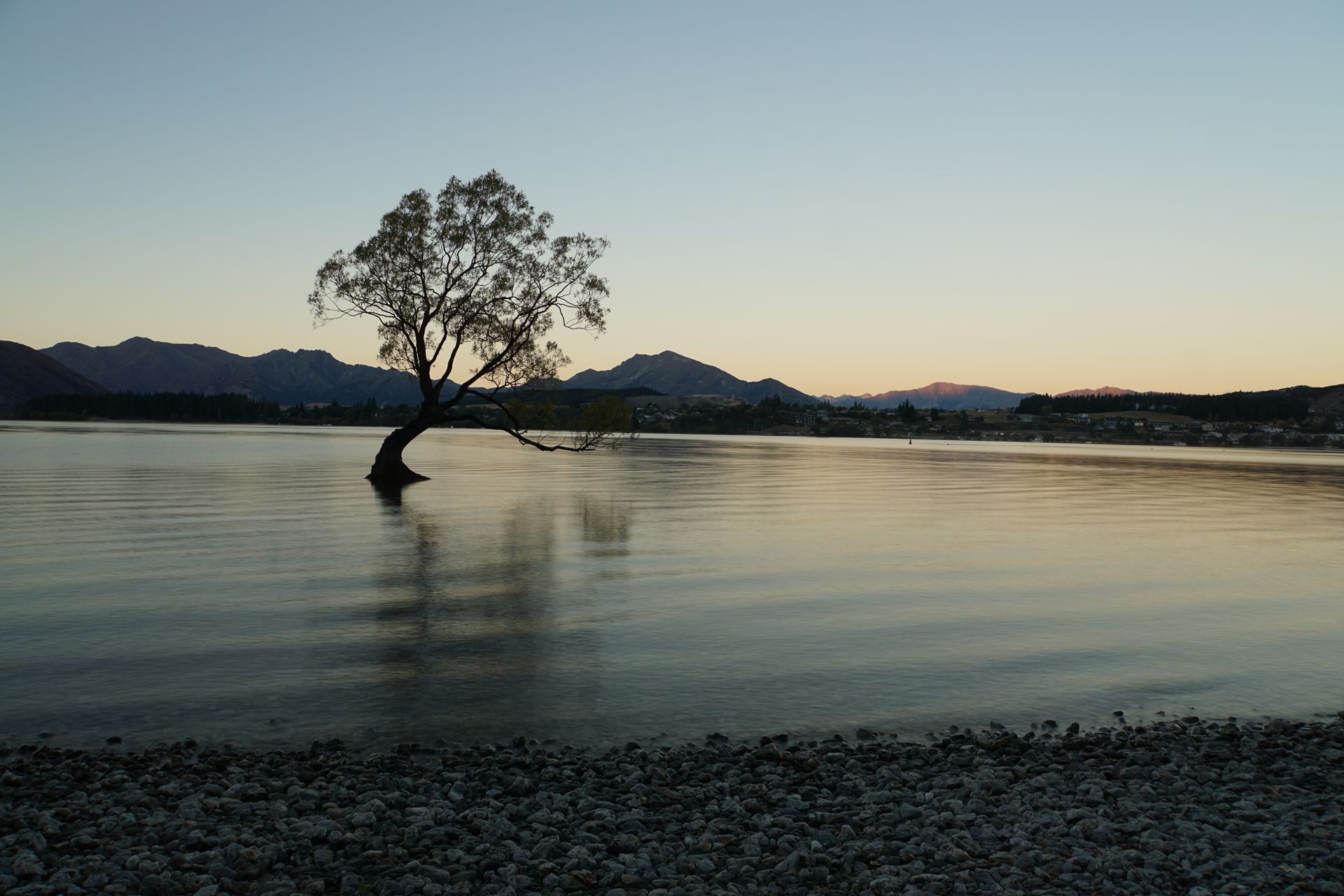
We also have a lot planned for the next morning. So we get up before dawn and drive to Rocky Mountain, which we also climb in semi-darkness. From up here, we have a beautiful view of Lake Wanaka, which is a great photo motif at sunrise.
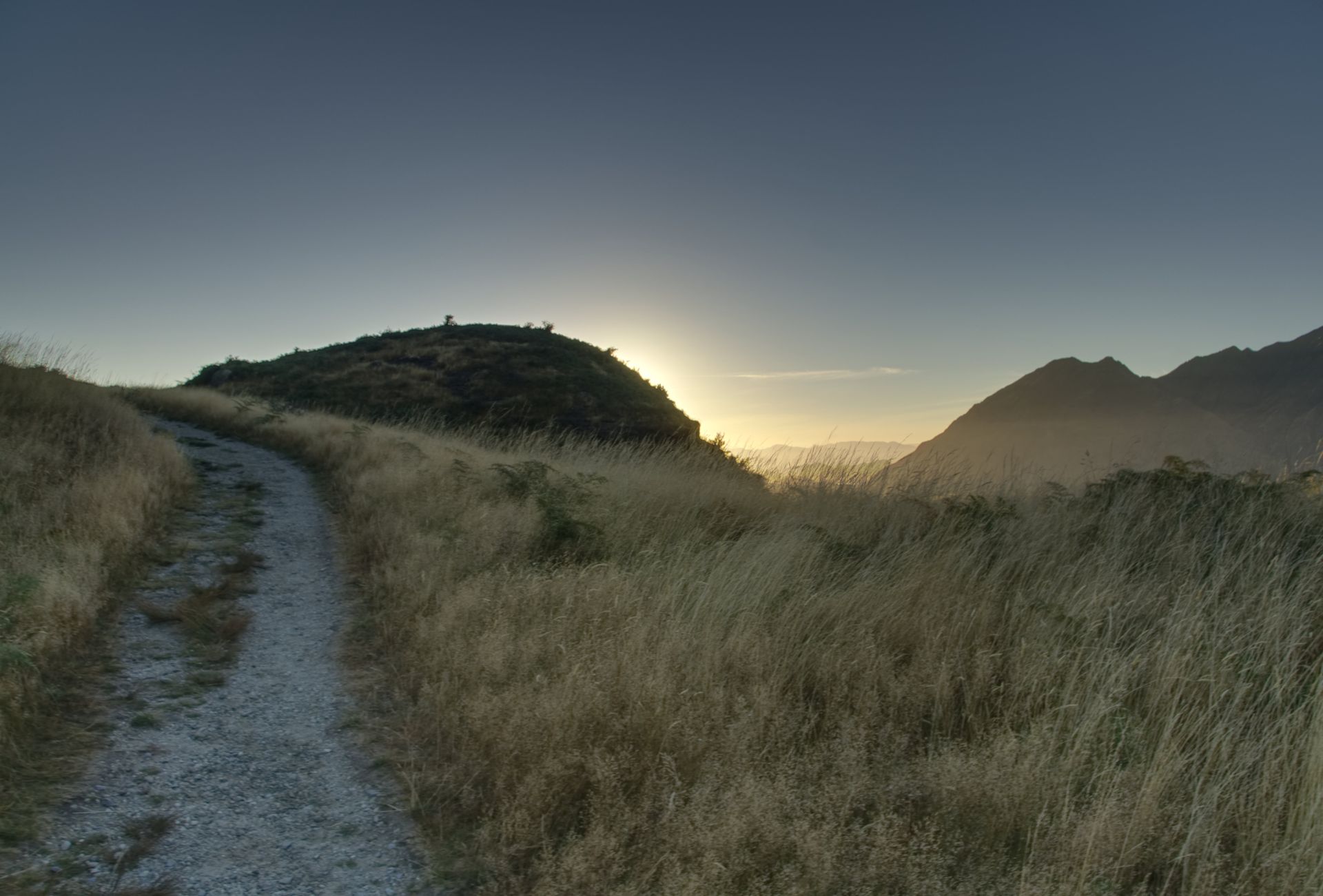
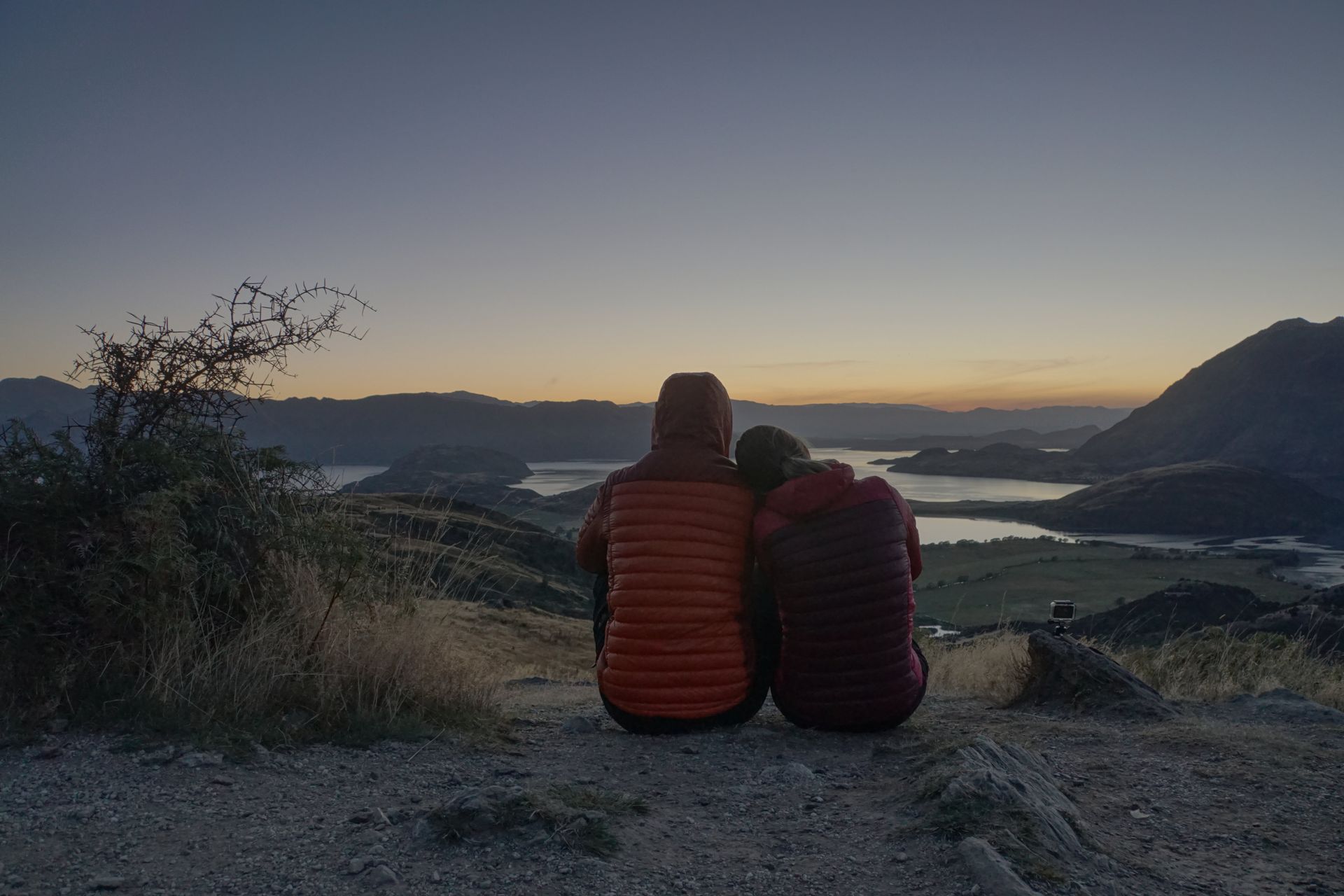

So we have already completed a good three-hour hike before breakfast and have well earned our hearty breakfast with eggs and bacon! For the rest of the day, we are free and use the time to do laundry and other organizational chores.
Our next destination is Te Anau, more precisely the Milford Sound and the Doubtful Sound in the Fiordland National Park in the south of New Zealand's South Island.
Naročite se na glasilo
Odgovori

Poročila o potovanjih Nova Zelandija
